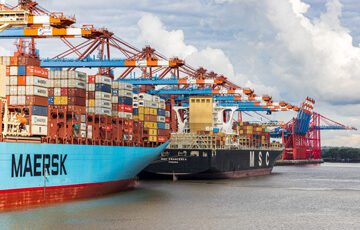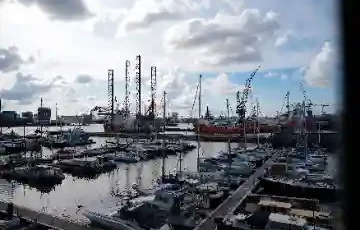Price-fixing agreements between competing companies are strictly prohibited under Article 6 of the Dutch Competition Act. Such cartel arrangements restrict free market mechanisms, lead to artificially inflated prices for customers, and damage fair competition. The Netherlands Authority for Consumers and Markets (ACM) actively enforces these rules and imposes fines of up to millions of euros.
Companies that make agreements about prices, quotations, or other competition-sensitive information form a cartel. This practice undermines fundamental market principles whereby businesses strive for the best product at a fair price. Consequently, cartel formation not only restricts direct competition between companies but also damages the Dutch economy as a whole. According to OECD research, cartels increase prices by an average of 20-30%, directly harming both businesses and consumers who pay excessive amounts for goods and services.
What Types of Price-Fixing Are Prohibited Under Dutch Law?
Companies violate the Dutch Competition Act when they make agreements that disrupt free price formation. Under Dutch law, merely conducting conversations with competitors about future prices constitutes a violation, even without written agreements. The ACM regularly finds that entrepreneurs underestimate the scope of the cartel prohibition, leading to unintentional violations that carry severe financial consequences.
Direct Price Agreements with Competitors in the Netherlands
Competing businesses may not make any agreement whatsoever about:
- Price increases or decreases for products or services
- Discounts or specifically not offering discounts to certain customers
- Minimum prices that all parties maintain
- Surcharges jointly passed on to customers
- Quotations where companies coordinate prices among themselves
A characteristic example involves construction companies in Amsterdam that made mutual agreements about minimum prices for renovation projects. Consequently, a housing corporation systematically paid 15-20% too much for maintenance work. Following an investigation by the ACM, a combined fine of €2.3 million followed for the contractors involved.
Price-Fixing Between Suppliers and Purchasers in Dutch Law
Vertical price agreements between companies in different distribution chain stages also fall under the cartel prohibition. Manufacturers and wholesalers may not determine or influence the sales price of their customers. According to Article 6 of the Dutch Competition Act, such arrangements constitute resale price maintenance, which restricts retailers’ commercial freedom.
Suppliers may provide an advisory price to retailers. However, according to the ACM’s Guidelines on Agreements between Suppliers and Purchasers, this advisory price may not be a disguised minimum price. Retailers remain completely free to establish their own sales price without pressure or interference from suppliers.
Prohibited actions by suppliers include:
- Threatening supply suspension when retailers fail to follow the advisory price
- Linking discounts to maintaining a certain price level
- Repeatedly contacting retailers about prices via email, telephone, or WhatsApp
- Imposing sanctions on retailers who reduce prices
- Exclusive allocation of territories whereby price agreements are made
Electronics manufacturer LG received a fine of €7.95 million in 2023 for systematically influencing online sales prices of televisions. LG actively sent retailers messages about ‘desired’ price levels and threatened worse delivery conditions when prices were set too low. This practice significantly restricted online price competition, resulting in consumers paying approximately 12% more for certain television models than market prices would dictate.
How Do You Recognize Cartel Formation Under Netherlands Law?
Entrepreneurs and purchasers can notice suspicious signals pointing to prohibited price agreements. Moreover, vigilance helps prevent damage and protects business interests.
Signals from Suppliers and Competitors in Dutch Markets
Price behavior forms the most conspicuous characteristic of cartel agreements:
- Multiple companies change prices simultaneously with identical percentages
- Competitors openly refer to ‘sector agreements’ or ‘normal rates’
- Industry associations communicate about prices or rates to members
- Suppliers mention they know each other’s prices
Communication between competitors should always make entrepreneurs vigilant. When a competitor contacts you by telephone or email about prices, discounts, or future rates, immediate danger of a cartel violation exists. The only correct response consists of immediately terminating the conversation and confirming in writing that you do not participate in such agreements. This documented refusal protects your company during potential future investigations.
Contract Allocation in Tenders Under Dutch Law
Tender procedures form a sensitive area for cartel formations. Consequently, contracting authorities systematically pay too much for government contracts or private projects. According to Statistics Netherlands (CBS), tender fraud leads to 10-25% higher costs, directly impacting public budgets and private investment returns.
Recognizable signals in tenders:
- Bids contain identical spelling errors or layout
- Nearly all bidders offer comparable prices
- One company suddenly bids much lower than all others
- Companies refer to each other with remarks like “now it’s your turn”
- Fewer companies submit bids than usual
A road construction company from North Holland discovered that five competitors divided contracts among themselves for years. During each tender, one party submitted a serious bid, while the others deliberately bid too high. The relevant entrepreneurs alternated as winners per project. Following a report to the ACM, a combined fine of €8.5 million followed, with each company held jointly liable for the collective damage caused to public contracting authorities.
What Are the Consequences of Price-Fixing in the Netherlands?
Cartel formation structurally damages the Dutch economy and European single market. Companies participating in prohibited agreements therefore risk severe sanctions from both national and European enforcement authorities. Beyond financial penalties, cartels undermine business reputation and expose companies to civil liability claims from damaged parties.
Fines by ACM and European Commission Under Dutch Law
The ACM imposes fines of up to 10% of worldwide annual turnover of involved companies. When cartel agreements influence trade between EU member states, the European Commission can also impose fines according to Article 101 TFEU, creating dual liability exposure for international cartels.
Recent fines illustrate the financial consequences:
- Samsung: €39.4 million for influencing retail prices of televisions
- LG Electronics: €7.95 million for vertical price maintenance
- Construction combination road construction: €8.5 million for contract allocation
- Dutch logistics companies: €42 million combined for coordinating fuel surcharges
Furthermore, the ACM calculates per violation. When price agreements lasted multiple years or concerned different products, the ACM adds up the fines. Additionally, a fine rarely reduces the competitive advantage companies gained, making cartels financially attractive until enforcement occurs. Companies typically profit €3-4 for every €1 paid in fines, creating perverse incentives that only aggressive enforcement can counter.
Leniency Program for Self-Reporters in Dutch Jurisdiction
Companies that self-report cartel agreements to the ACM can obtain complete immunity from fines or substantial fine reduction up to 50%. This leniency program encourages entrepreneurs to voluntarily terminate cartels and provides crucial evidence for enforcement actions against other cartel participants.
Requirements for leniency:
- First reporter receives complete exemption from fines
- Second and third reporters receive up to 50% discount
- Full cooperation with investigation remains mandatory
- Companies must submit evidence material including internal communications and meeting notes
Damage Claims by Injured Parties Under Netherlands Law
Beyond fines, damaged businesses and consumers can claim compensation. Dutch courts regularly honor claims whereby cartel victims recover overpaid amounts, increased with statutory interest. According to Article 6:193j Dutch Civil Code, injured parties can claim compensation for damage suffered due to cartel violations, with a limitation period of five years from discovery.
An Amsterdam project developer claimed €4.2 million back after price-fixing between suppliers of building materials. The District Court of Amsterdam ruled in 2022 that the developer was entitled to full compensation for overpaid amounts over three years, plus €387,000 in statutory interest and legal costs. This precedent strengthened enforcement by making cartel participation economically unattractive even when companies escape ACM fines.
Which Agreements Are Permitted in the Netherlands?
Entrepreneurs may cooperate in specific situations without violating the cartel prohibition under Dutch law. Such exceptions require strict conditions and careful legal assessment. Understanding permitted cooperation helps businesses achieve legitimate objectives while maintaining compliance with competition regulations.
De Minimis Exemption for Small Entrepreneurs in Dutch Law
Small cooperation arrangements fall outside the cartel prohibition when they meet the de minimis exemption. This regulation applies to a maximum of 8 companies with:
- Combined turnover below €5.5 million (for product sales)
- Combined turnover below €1.1 million (for service provision)
- Maximum 10% combined market share
Moreover, agreements may not influence trade between EU member states. Nevertheless, hardcore cartel agreements such as price-fixing or market division remain prohibited, even for small entrepreneurs operating exclusively in local markets.
Block Exemption for Vertical Agreements Under Netherlands Law
Distribution agreements between suppliers and purchasers fall under the Block Exemption Regulation when both parties possess maximum 30% market share. This exemption allows manufacturers and retailers to make agreements about, for example, exclusive distribution or selective distribution without individual notification to competition authorities.
Permitted vertical agreements:
- Maximum selling prices (no minimum or fixed prices)
- Selective distribution based on objective quality criteria
- Exclusive territory allocation to maximum five distributors
- Non-compete obligations with maximum duration of five years
However, hardcore restrictions such as vertical price-fixing or absolute territorial protection remain always prohibited. Furthermore, within selective distribution systems, passive sales to customers outside own territory must remain possible, ensuring consumers retain access to products regardless of geographic location.
Sustainability Agreements in Dutch Jurisdiction
Companies may make sustainability agreements under conditions since 2023. Such agreements must serve concrete societal goals such as climate protection, human rights, or animal welfare, balancing competition concerns with broader public interest objectives.
Requirements for permitted sustainability agreements:
- Agreements measurably improve societal welfare
- Consumers share in the benefits
- Alternative methods do not exist to achieve goals
- Sufficient competition remains preserved in the market
A consortium of Dutch supermarkets received permission to make agreements about minimum animal welfare standards for meat. Although this cooperation increased costs, it led to demonstrable improvement of animal health and increased transparency toward consumers. Approximately 73% of consumers supported these agreements despite modest price increases, demonstrating public willingness to accept higher costs for verified sustainability improvements.
How Do You Prevent Cartel Agreements in the Netherlands?
Companies protect themselves against unintended cartel risks by implementing preventive measures and establishing robust internal compliance programs. Additionally, legal advice helps identify risks before problems arise, saving substantial costs and reputational damage.
Compliance Within Your Organization Under Dutch Law
Implement internal guidelines that instruct employees about permitted and prohibited contacts with competitors:
- Train sales teams and purchasers about cartel risks
- Prohibit conversations about prices, quotations, or customers with competitors
- Document all business contacts with competing companies
- Appoint a compliance officer who maintains oversight
When an employee becomes involved in suspicious conversations during industry events or informal contacts, this person must immediately terminate the conversation and indicate in writing not to participate. This communication protects your company during potential future investigations and demonstrates proactive compliance efforts that courts and regulators consider favorably.
Dealing with Suppliers in Dutch Markets
Retailers must remain alert to pressure from suppliers about selling prices. Use the ACM’s advisory price check to verify whether your supplier adheres to the rules and respects your commercial freedom.
Defensible actions:
- Independently determine all selling prices
- Ignore ‘requests’ for price adjustments
- Document pressure exerted by suppliers
Actions when facing improper pressure:
- Confirm in writing that you do not cooperate with price agreements
- Contact the ACM regarding continuing pressure
- Obtain legal advice about your position
Check Cooperation Agreements Under Netherlands Law
The ACM offers a cooperation check whereby entrepreneurs anonymously verify whether planned agreements with competitors are permitted. This free tool assesses various cooperation forms and signals potential cartel risks before companies commit to questionable arrangements.
Additionally, companies can formally request advice from the ACM about complex cooperation constructions. Such advice provides legal certainty before entrepreneurs make investments in new cooperation arrangements. However, note that ACM guidance is not legally binding and final assessment occurs during enforcement proceedings.
What to Do When Suspecting a Cartel in Dutch Law?
Entrepreneurs and consumers who notice signals of cartel formation can take action by reporting suspicions to enforcement authorities. Reports help the ACM initiate targeted investigations and protect market integrity.
Report to ACM in the Netherlands
Report your suspicion via the online reporting form of the Netherlands Authority for Consumers and Markets. Provide:
- Concrete facts about suspicious agreements
- Names of involved companies
- Documentation such as emails, notes, or WhatsApp messages
- Your contact details (reporting can be anonymous)
The ACM treats all reports confidentially. Information becomes available exclusively to investigation teams bound by strict confidentiality obligations according to Article 89 Dutch Competition Act. Furthermore, whistleblower protection prevents retaliation against employees who report cartel violations in good faith.
Company Visit by ACM Under Dutch Law
When the ACM has suspicions of cartel formation, enforcement officers can make an unannounced company visit (dawn raid). During this visit, ACM employees search:
- Physical and digital administration
- Email traffic and chat messages
- Agendas and minutes of meetings
- Financial documents
Your rights during a company visit:
- Right to assistance by a lawyer
- Employees may refuse to answer questions (right to remain silent)
- Right to copies of seized documents
- Possibility to seal confidential documents
Entrepreneurs must fully cooperate with investigations. Obstruction leads to separate fines up to €450,000 or 1% of turnover, emphasizing the importance of professional legal representation during ACM investigations.
Protect Your Business Against Cartel Risks in the Netherlands
Do you question whether your cooperation agreements remain within the boundaries of the Dutch Competition Act? Our specialized lawyers in Amsterdam analyze your distribution agreements, purchase contracts, and cooperation arrangements. We advise about permitted agreements and protect your company against unintended cartel violations.
International Cartel Agreements Under Dutch Law
Cartels do not limit themselves to the Netherlands. When price agreements influence trade between EU member states, the European Commission intervenes based on Article 101 TFEU. These European rules provide comparable protection as the Dutch Competition Act but operate at a transnational level with correspondingly higher penalties.
European cartels regularly occur in sectors such as:
- Freight transport between different countries
- International tenders for infrastructure projects
- Cross-border supply of chemicals and raw materials
- Software and technology licenses for multiple markets
The European Commission imposes on average higher fines than the ACM. Fines amount to up to 10% of worldwide group turnover, whereby parent companies are also liable for violations by subsidiaries. A French construction company received a fine of €52 million in 2021 for price-fixing in infrastructure projects across five EU countries, demonstrating the Commission’s aggressive approach to international cartels.
Dual Distribution and Information Exchange in Dutch Jurisdiction
Suppliers who sell both through distributors and directly to end customers (dual distribution) face extra risks. This situation arises, for example, when manufacturers operate webshops alongside their retail network, creating potential conflicts of interest and information asymmetries.
In dual distribution, supplier and distributor compete at retail level. Exchange of competition-sensitive information between both parties can therefore constitute cartel formation. Permitted information concerns exclusively:
- Performance indicators necessary for execution of distribution contract
- Customer feedback about product defects or service quality
- General market trends without company-specific figures
Prohibited information includes future prices, individual customer data, or confidential purchasing conditions. Suppliers must build in safeguards that prevent information from distributors reaching internal sales teams, typically through Chinese walls or separate legal entities.
Recent Developments in Competition Law in the Netherlands
The ACM has intensified enforcement of cartel prohibitions since 2022, shifting focus toward new sectors and digital markets. This increased scrutiny reflects growing concern about anti-competitive practices in evolving business models and online platforms.
Price-Fixing in Digital Economy Under Dutch Law
Platforms such as Bol.com and Amazon use algorithms that automatically adjust prices to competitors. When retailers consciously synchronize algorithms to restrict price competition, cartel formation occurs even without direct human communication.
The Court of Justice EU ruled in 2023 that pricing algorithms follow the same competition rules as human decisions. Entrepreneurs remain responsible for automatic price adjustments that restrict competition. Algorithmic collusion represents approximately 18% of recent ACM investigations, indicating the growing importance of technological enforcement methods.
Labor Market Agreements Under Netherlands Law
Employers may not make agreements about employment conditions outside collective labor agreements (CAOs). Such agreements restrict competition in the labor market and harm employees by suppressing wages and limiting career opportunities.
Prohibited agreements between employers:
- Jointly determined maximum salaries or bonuses
- Agreements not to recruit each other’s personnel (no-poach)
- Coordinated rates for independent contractors or freelancers
- Non-agreement about secondary employment conditions
A group of hospitals in Amsterdam made agreements about maximum rates for medical specialists. Following investigation by the ACM, a combined fine of €3.7 million followed in 2023. Involved specialists additionally filed damage claims for lost income, with several cases pending before Dutch courts seeking compensation exceeding €12 million collectively.
Competition Act and Sustainability in Dutch Law
Dutch companies may make broader sustainability agreements since January 2023. This adjustment arose after lengthy discussion about tension between climate goals and competition rules, recognizing that collective action sometimes proves necessary for environmental protection.
Permitted sustainability agreements must satisfy four cumulative conditions according to updated guidelines:
- Agreements deliver objective efficiency gains or societal benefits
- Consumers share in the benefits through lower prices, better products, or environmental protection
- Restrictions remain indispensable to achieve sustainability goals
- Substantial competition remains in relevant markets
Textile producers received permission for joint agreements about minimum working conditions at suppliers in Asia. Although these agreements increased production costs by 8%, the ACM ruled that human rights protection outweighed price competition. Consumer research showed 82% support for these agreements despite modest price increases, validating the balance between competition and sustainability objectives.
Obtain Timely Legal Advice in the Netherlands
Do you doubt the permissibility of planned agreements with competitors, suppliers, or purchasers? Our law firm in Amsterdam possesses extensive expertise in competition law and distribution agreements. We assess your cooperation plans, implement compliance programs, and defend your interests during investigations by the ACM. Contact us for a non-binding analysis of your specific situation and protect your business against costly competition law violations.









